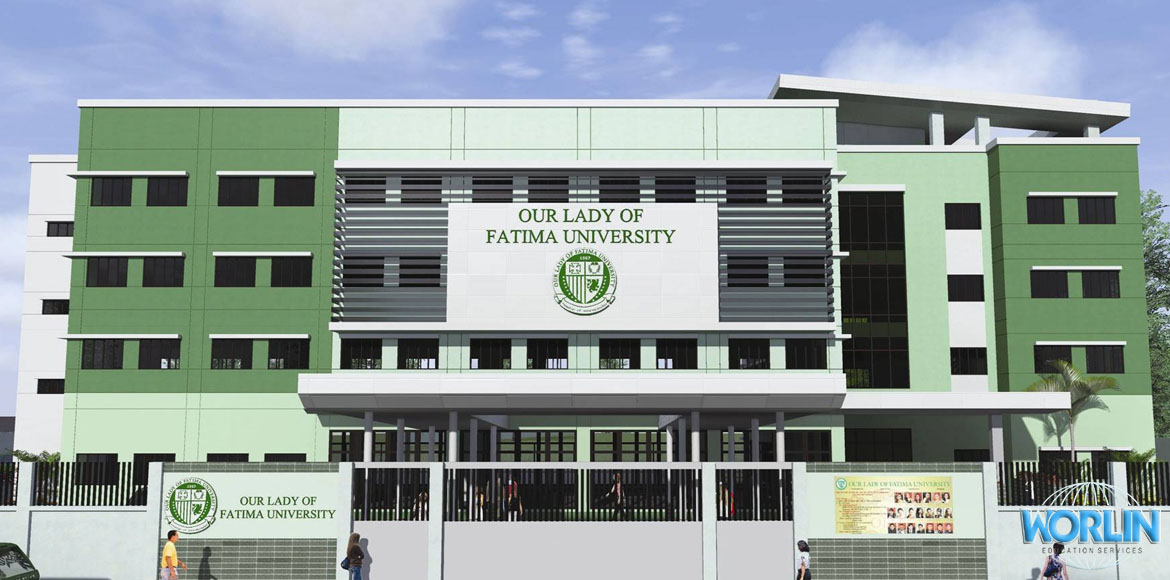Our Lady of Fatima University

Founded in 1967 by Jose Olivares and his son-in-law, Dr. Vicente M. Santos Sr., the university grew out of Our Lady of Fatima Hospital. The hospital became the primary provider of medical and health care services for Valenzuela. Olivares was and previously chemistry professor at Ateneo de Manila University and the University of the Philippines. Santos rose from humble origins in Hagonoy Bulacan, graduated from the University of Santo Tomas, became an obstetrician-gynecologist, and delivered over 96,000 babies during his 40 years of service.
The college seeks to promote the virtues of “Veritas et Misericordia” (Latin for truth and compassion).[3]
The founders set about improving the facility from a general hospital to a teaching hospital for health care providers such as nurses and midwives. This began in 1973 with the founding of Our Lady of Fatima College of Nursing.
Dr. Santos and his wife Juliet Olivares-Santos continued the school’s expansion, including the 1979 establishment of Fatima College of Medicine with the pioneer batch graduating in 1983. While Fatima still focuses mainly on medical and allied health studies, in the 1990s the college diversified, starting programs in computer science, maritime education, education, psychology, biology, tourism and business.
The college became a university in December 2002, with Dr. Vicente M. Santos Sr. as its founding president.[4] Upon his death, his wife, Dr. Juliet O. Santos, became the university’s second president. By year 2008 up to present, Dr. Caroline Marian S. Enriquez was appointed by the Board of Trustees as the third president of the University.
The next years further saw an increase in infrastructure development. New buildings were established in the Valenzuela and Quezon City campuses, with additional nursing virtual laboratories and simulators. This paved the way for Fatima’s College of Nursing to be designated by CHED as a Center of Development in late 2008.[5] Fatima’s expansion continued with the establishment of additional campuses in Antipolo, Pampanga, Nueva Ecija, and Sta. Rosa, Laguna.[2]
Owing to recognitions, it has received through voluntary accreditation of its programs within the framework of the Federation of Accrediting Agencies of the Philippines, the university voluntary subjected itself to CHED’s Institutional Quality Assurance through Monitoring and Evaluation (IQuAME) in 2008. In 2009, after being evaluated, it was placed in Category A(t) as a mature teaching university.[3]
In recognition of its accomplishments, the Commission on Higher Education through CEB Resolution No. 076-2009 granted autonomous status to the university for five years from March 11, 2009 to March 30, 2014.[3]


